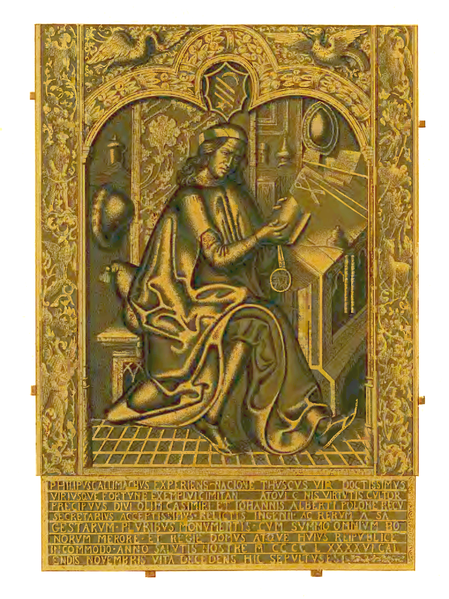

Queer Places:
Church of the Holy Trinity
Kraków, Miasto Kraków, Małopolskie, Poland

Born in San Gimignano, Tuscany, Buonaccorsi moved to Rome in 1462 and became a student of the (homosexual) humanist Julius Pomponius Laetus (in whose house he also lived); he also became a member of the Accademia Romana founded by Pomponio-Leto. Buonaccorsi's life took a dramatic turn in 1468, when he was accused of having conspired against Pope Paul II. He managed to avoid arrest by flight, but the homosexual verses which were found in his papers then earned him a reputation for sodomy. Among the youths hailed in his poems was Antonio Lepido, another of Pomponio-Leto's students, whom ‘Callìmaco’ (Buonaccorsi's humanist name) called ‘his Ganymede’ (phrygius amor). The poems also referred to Lucio Fazini, who became Bishop of Segni in 1481, as ‘Lucidus Phosphorus’ (‘ Bearer of Light’).
After various peregrinations, Callìmaco took refuge in the court of the king of Poland, who named him tutor to the royal princes. Thus began a meteoric rise. In 1474, Buonaccorsi was named royal secretary, in 1476– 1477 he served as ambassador to Constantinople, and in 1486 he became the king's representative in Venice. With the accession to the Polish throne of his former pupil Jan Olbracht, Buonaccorsi's influence peaked. He reciprocated the royal favour in his writings by arguing the necessity of a reinforcement of the king's power at the expense of the aristocracy. He died and was interred in Cracow, where his tomb can still be seen.
Buonaccorsi was the author of poetical, philosophical and historical works – which, after the scandal which led to his exile, prudently became exclusively heterosexual. The fact that much of the research on him has appeared in Polish (and which in part remains unpublished) has meant that his life and work is little known outside of Poland, though it merits rediscovery.
My published books: